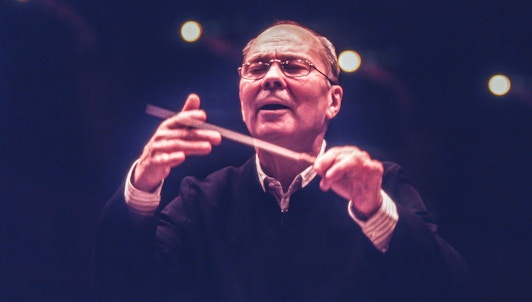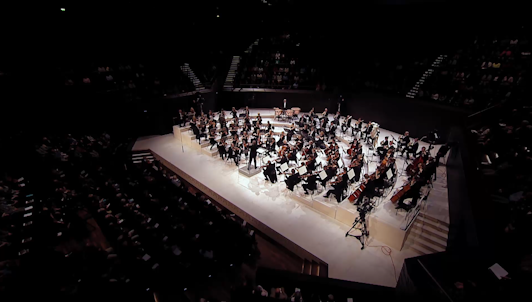Energized by the sun and the vitality of the Italian Riviera town Rapallo, with Don Juan and Dante fluttering in his head, Sibelius wrote the first nascent ideas for his Second Symphony, a great leap forward in his unceasing quest to develop and refine his own personal style. In structural terms, the great Finnish composer struck out for terra incognita in this work, though the textures and motifs of this captivating score still owe much to Beethoven, Brahms, and even Tchaikovsky.
A moment to listen for in… Sibelius’s Second Symphony: A dark woodwind section floats calmly atop a cello pizzicato (12:25), until the strings play a haunting song (12:51) that mounts in intensity and, rather than lead to an expected orchestral climax, allows the flute section to join in a colourful three-layered section (13:35)—a typical feature in Sibelius’s orchestral writing.

The legendary 1998 cycle of Sibelius's symphonies

The legendary 1998 cycle of Sibelius's symphonies
